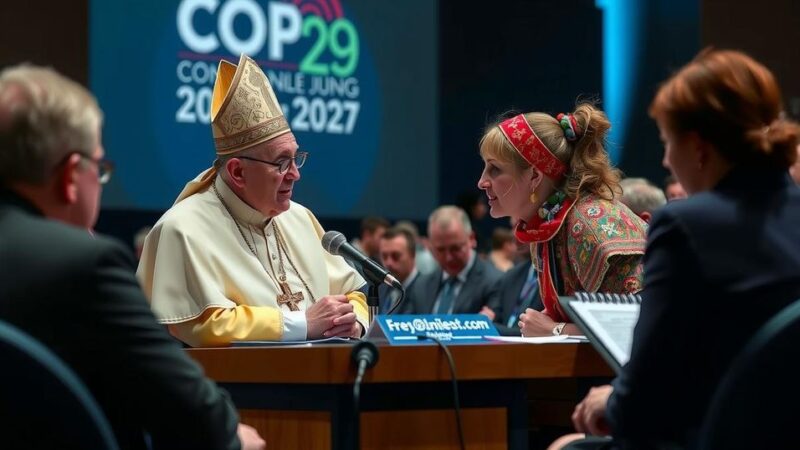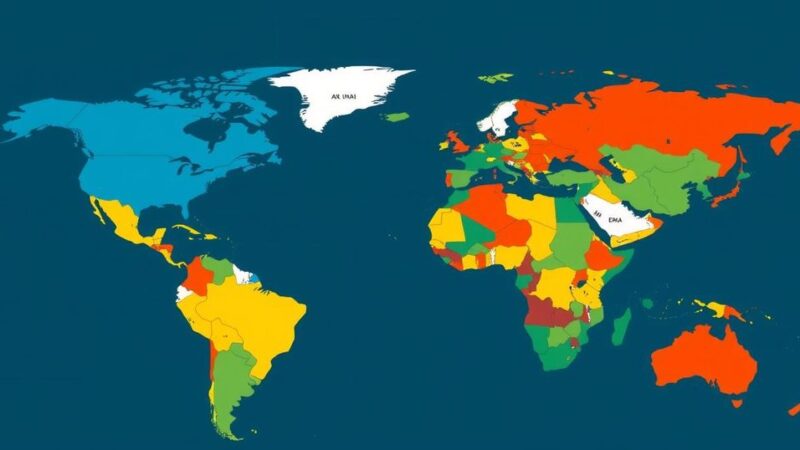During the Cornell-OFR Conference, Treasury Secretary Janet Yellen emphasized the critical need for collective action in climate finance to ensure economic prosperity. Experts discussed financial strategies to combat climate risks and the economic rationale for advanced economies to support decarbonization in developing nations. The event underscored the collaborative role of various sectors in addressing climate change while highlighting the urgency of bridging the climate finance gap for future stability.
At the recent Cornell-OFR Conference on Global Climate Finance and Risks, held virtually on October 25, Treasury Secretary Janet Yellen underscored the critical relationship between climate change mitigation and future economic growth. “Our global economic future depends on addressing climate change,” she asserted, emphasizing the collective role of various sectors in tackling the climate crisis. The conference, co-hosted by esteemed institutions such as the Cornell SC Johnson College of Business and the U.S. Department of the Treasury’s Office of Financial Research, welcomed more than 750 participants from 48 countries, featuring prominent experts across multiple domains. In her keynote address, Yellen highlighted the necessity for regulatory bodies to prioritize climate risks to ensure financial stability. She discussed the Treasury’s initiatives aimed at enhancing data collection on insurance costs related to climate impacts, alongside efforts to include climate variables in macroeconomic forecasting. Yellen also referenced the Inflation Reduction Act, which aims to incentivize clean energy investments in the private sector, and international financing commitments aimed at aiding countries in their transition to greener energy practices, exemplified by the Just Energy Transition Partnerships in several nations. A subsequent roundtable discussion led by assistant professor Alissa M. Kleinnijenhuis, covered the economic imperatives for scaling climate finance, arguing that it would be economically advantageous for developed nations to fund decarbonization efforts in developing ones. According to co-author Jeromin Zettelmeyer, although the expense for developing countries to phase out coal may exceed local benefits, advanced economies could gain significantly from such investments, estimating an annual cost of about 0.3% of GDP for financial contributions. As dialogue continued, experts stressed the urgent need to address the historical emissions burdens carried by developed nations. Nuno Fernandes of the IESE Business School illustrated the inequity of expecting emerging markets to bear the costs of reducing carbon emissions without adequate support from wealthier countries. Additionally, U.S. Treasury climate counselor Ethan Zindler emphasized that advances in cleaner technologies present economic opportunities, contingent upon supportive public policies that galvanize private investments. The conference concluded with calls for immediate action to bridge the climate finance gap, characterizing this moment as pivotal in our history, according to Kleinnijenhuis: “We face a defining choice: Close the climate finance gap and unlock the most transformative economic opportunity of the 21st century, or embark on a path that will lead to escalating climate damages for generations to come.”
The topic of climate finance has gained prominence as global leaders recognize that addressing climate change is critical to maintaining economic stability. Such discussions focus not only on the environmental aspects of climate change but also on the financial implications associated with transitioning to a sustainable economy. Events like the Cornell-OFR Conference bring together experts from various fields to share insights on effective financial strategies to curb the climate crisis, highlight the responsibilities of both developed and developing nations, and advocate for collaborative action towards a sustainable future.
The Cornell-OFR Conference highlighted the urgent need for cohesive action from multiple sectors to mitigate climate change and emphasized the economic rationale for developed countries to invest in the decarbonization efforts of the Global South. Consensus emerged on the necessity of addressing historical inequalities in emissions and the imperative for total global collaboration to avoid future climate-related economic damages. Stakeholders are encouraged to recognize the significant opportunities presented by climate finance as a means to secure collective well-being and prosperity moving forward.
Original Source: news.cornell.edu






